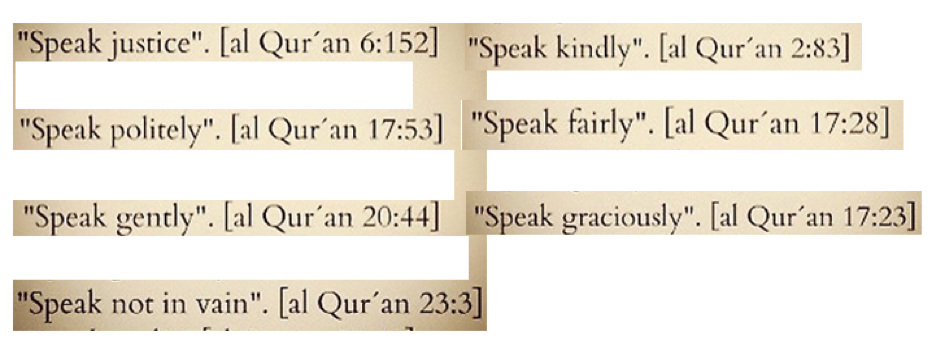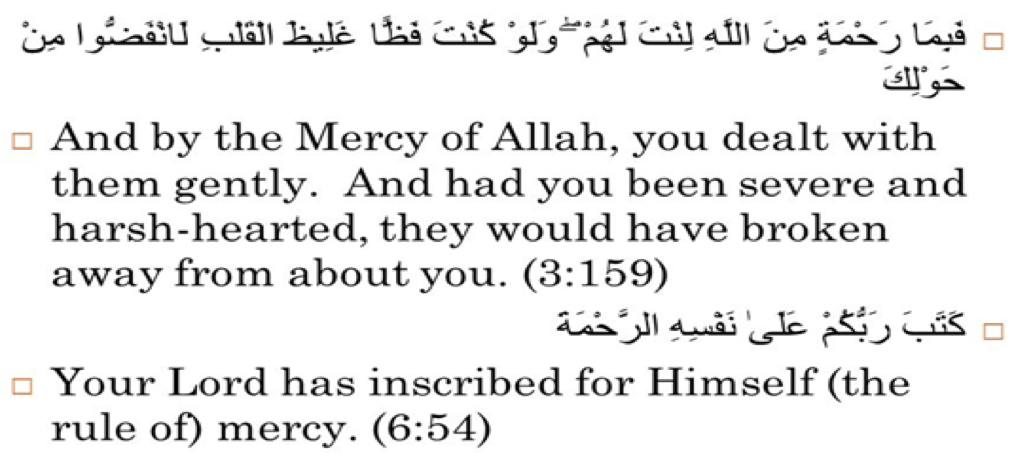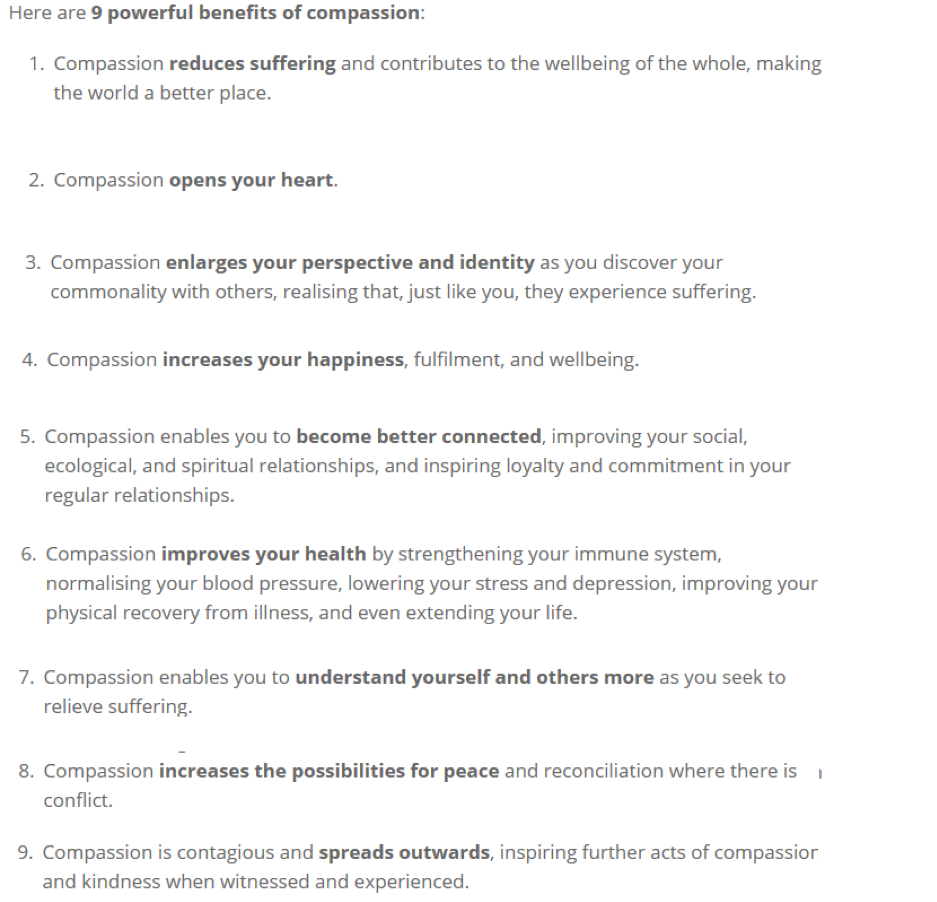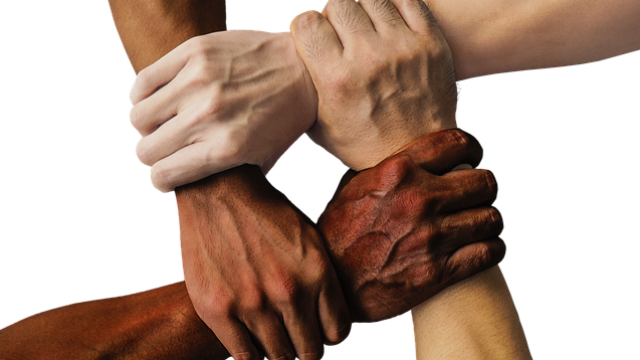Lesson 4
The Language of Compassion 2‘Caring for Others’
Age group: 10 – 13yrs
Aim
To be able to understand the importance of compassion and speculate what the world might look like if compassion did not exist.
Learning Objectives
- Describe a world which has no compassion
- Describe from your own faith or ethical background why do you think compassion is so important
- Discuss, giving examples, from your own traditions and background of compassionate leaders

Background
Compassion, defined as “Love in Action” has undergone a revival in the 21st centuary. There are four elements to compassion:-
- The recognition of a person’s or group’s suffering
- An empathetic response to that suffering
- An active determination to alleviate the distress and, where possible, the causes of that distress.
- The practical wisdom (of the heart and of the mind) to do this.
Coles’ article on Islam, Compassion and Education explores this in great detail in relation to Islamic perspectives.
Activity
Icebreaker
- List the learning outcomes.
- Refresh students understanding of the word ‘compassion’. List the student responses which might include the following keywords: Warmth, love, leniency, understanding, care, concern, empathy, gentleness, humanity, consideration, kindness, benevolence, pity, sympathy
- Ask them who is most compassionate person in their lives and why
Time: 10 Mins.
Resources: Flip Charts / Whiteboard and pens
.
Development: Activity 1
Take feedback and record student views.
KEY WORDS: unfeeling • hard-hearted • unsympathetic • stonyhearted • unmerciful • merciless.
Time: 10 Mins.
Resources: Flipchart / Whiteboards and pens. Pens and paper for young people.
Development: Activity 2
Describe from your own faith or ethical background why do you think compassion is so important.
Time: 15 Mins.
Resources: Data Projector, Picture of old woman / Video clip
*****
From your own faith or ethical tradition, why do you think Compassion is so important?
Here are some examples from the Quran:


Development: Activity 3
Discuss, giving examples, from your own traditions and background of compassionate leaders.
Time: 15 Mins.
*****
Teachers might wish to use one or more of the examples provided below.
THE PROPHET’S COMPASSION
1 THE PROPHET’S KINDNESS
One old woman made a habit of throwing rubbish on Prophet Muhammad whenever he passed from her house! Muhammad had to pass that house daily on the way to the mosque. Even when the old woman threw rubbish on him, he would pass silently without showing any anger or annoyance. This was a regular, daily event. One day when the Prophet was passing by, the woman was not there to throw the rubbish. He stopped, and asked the neighbour about her well-being, and wondering why she wasn’t dropping any rubbish on him.
The neighbour informed the Prophet that the woman was sick in bed. The Prophet politely asked permission to visit the woman. When allowed he entered the house, the woman thought that he had come there to take his revenge when she was unable to defend herself because of sickness.
But the Prophet assured her that he had come to her, not to take any revenge, but to see her and to look after her needs, as it was the command of Allah that if anyone is sick, a Muslim should visit them and should help them if help is needed. The old woman was greatly moved by this kindness and love of the Prophet. By the example of greatness of Muhammad, she understood that he was truly the Prophet of God and Islam was the true religion. She accepted Islam at once, Alhamdulilah.
Key Points: Rights of Neighbours in Islam, Kindness, Visiting and caring for the ill, Forgiveness.
2 THE PROPHET’S VERBAL MANNERISM
There are many instances that show his kindness and gentleness, especially to the weak and the poor. Anas, who was his helper, said: “I served Allah’s Messenger for ten years and he never said to me, ‘Shame’ or ‘Why did you do such-and-such a thing?’ or ‘Why did you not do such-and-such a thing?'”
3 THE PROPHET’S ADVICE AND SAYINGS
Once he said to his wife: “Never turn away any needy man from your door empty-handed. Love the poor; bring them near to you and God will bring you near to Him on the Day of Resurrection”.
He also went much further on to say: “Seek me among your weak ones, for you are given provision, or you are given help only by reason of the presence of your weak ones”.
The Prophet said: “God is kind and likes kindness in all things. The best house among the Muslims is one which contains an orphan who is well treated, and the worst house among the Muslims is one which contains an orphan who is badly treated”
COMPASSION OF THE AHLUL BAIT
1 IMAM ALI’S TREATMENT OF AYESHA
Ayesha was taken prisoner, was treated with courtesy and consideration and escorted with every mark of respect to Medina. She was sent under escort of her brother Muhammad ibn Abi Bakr.
After the battle Ayesha had regrets and felt that though she had brought about this rebellion Imam Ali was treating her with utmost courtesy and kindness. She requested that her nephew Abdullah ibn Zubair, be forgiven and freed. Imam Ali granted the request.
2 HASRAT ALI TREATMENT OF HIS SLAVE
It is reported that Qambar the slave of Imam Ali said I spent my days under the slavery of Amir’ul-Mu’minin in such a way that he used to feed me first then eat himself. First he clothed me then he clothed himself. One day the Imam purchased two shirts. He saw that the shirt of Salman Farsi was patched at many places. So he gave one shirt to him and told me to put on the second. I said that the Imam’s shirt was also quite worn out, but he said, You wear it. I will buy another one for myself when it is possible. He never awoke me for some errand and never made me work when I was sick. He never gave me tasks beyond my strength or capacity. The Imam tried to free me many times but I implored and pleaded the Imam not to do so.
3 SAYINGS OF HAZRAT ALI
- Good manners are your beauty
- Through kindness hearts are owned
- You will begin to heal when you let go of the past and forgive those who have wronged you.
- When you cannot give the weak and the oppressed anything, then at least show mercy and kindness towards them.
- The best deed of a great man is to forgive and forget.
- “Courtesy costs nothing, but buys everything.”
Plenary
Below are listed 9 potential benefits of being compassionate. Teachers can use this for reference.




